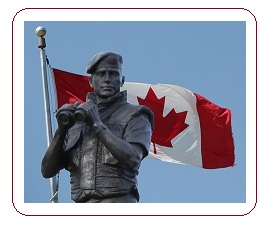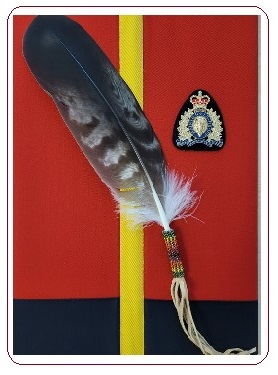True and Fascinating Canadian History
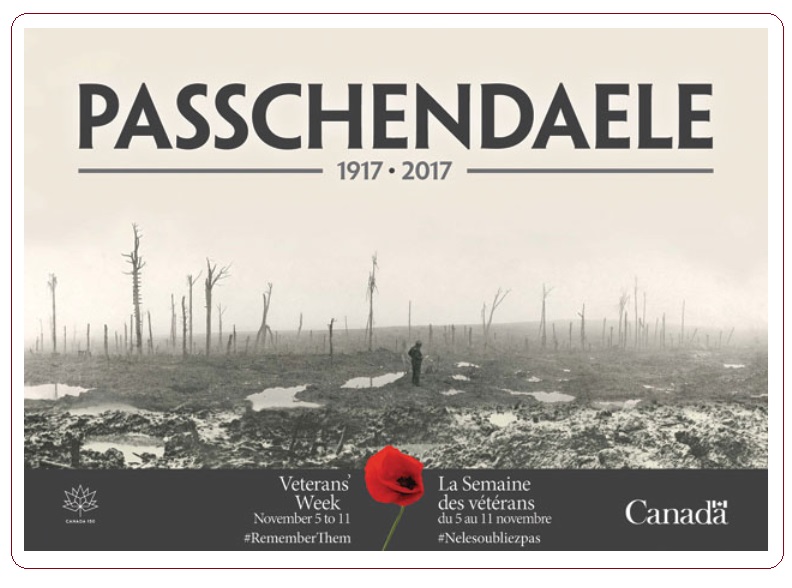
Vet of the Month: September, 2023
Reg.#4746, Corporal Ross MacAulay MacKenzie. KIA. WWI
RCMP Vets. Ottawa, ON

This short tribute is dedicated to the memory of Reg.#4746, Corporal Ross MacAulay MacKenzie. His life was short yet it was one of honourable service; first, as a police officer in the Yukon, and not so many years later, he also fought bravely as a soldier in WWI. As a junior Lieutenant with the Canadian Expeditionary Force (CEF) Ross MacKenzie led his company of men during unimaginable weather and fighting conditions to take Passchendaele. In one life, he was a northern adventurer, and in another life he was a devoted soldier and a courageous leader. He died at Passchendaele -- a campaign of WWI, fought by the Allies against the Germans. Ross MacKenzie was killed at 26 years of age.
It is very unfortunate that the RCMP Service Records in Ottawa for Ross MacAulay MacKenzie were destroyed years ago, but some details about his life and his personality can be pieced together. His WWI Attestation Papers remain as well as his obituary which speaks of his death. He represented all the fine qualities of a young Canadian; he answered the call for need in time of war, unquestionably he was brave, and he sacrificed his life for others. This is how he will be remembered.
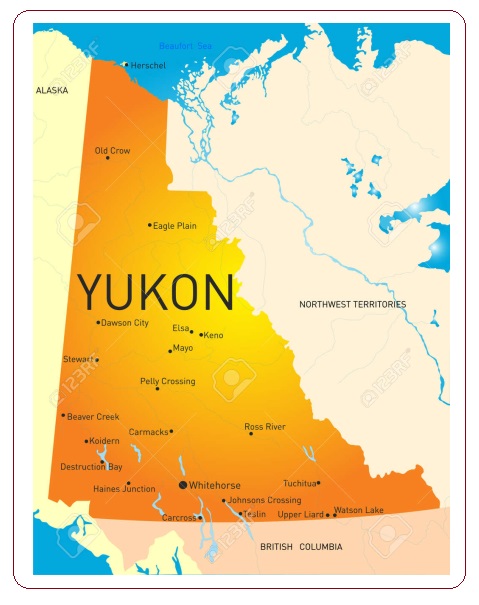
Ross MacKenzie was born to Presbyterian parents in Baddeck, Nova Scotia in 1890. In 1908, and at the age of 18 he joined the Royal North West Mounted Police (RNWMP). After a short time in Recruit Training, he was first posted to the Yukon. The Gold Rush was essentially in decline, but the territory remained a dangerous and potentially deadly place. The north still required law and order, and young men including Ross MacKenzie could be sent expeditiously to the Yukon because RNWMP policy dictated the north was limited to a two year stint for police recruits.
One can get a fairly good insight into Ross MacKenzie’s personality type from a description of the RNWMP in the north once provided by Canadian author Pierre Berton in his famous 1972 book entitled: Klondike: The Last Great Gold Rush: 1896 to 1899. Pierre Berton wrote, “They (RNWMP constables) were all gallant young men, these constables with the neat, aquiline profiles and soft accents that hinted at their background. The large majority were Englishmen, younger sons of well-to-do families, seeking adventure and service in the outposts of [the] Empire. They seldom raised their voices, almost never drew a gun, and rarely had to give an order twice.” (Berton: 267). One can gain an image of Ross MacKenzie -- he would likely have fit the mild mannered mold of the RNWMP at the time in the Yukon. He and his chums were young and in search of adventure, and the Yukon could abundantly provide him with a lifetime of memories.
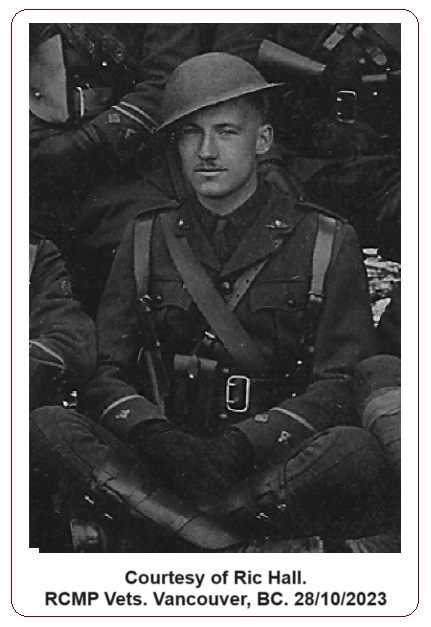
After a few years in the Yukon, MacKenzie was transferred to ‘Depot’ Division in Regina, SK. One doesn’t know with certainty the reasons for MacKenzie to leave the Force, but in 1912, he purchased his discharge from the RNWMP, and he returned to civilian life. As far as one can tell, he had no blemishes on his personnel record. He returned home to Nova Scotia. Circling around the world were rumours of pending war
At home in Nova Scotia, Ross MacKenzie joined the Cape Breton Highlanders. He signed on with the Canadian Expeditionary Force (CEF) at Aldershot, NS on October 10th, 1916, and soon after he was shipped overseas. He was promoted to Lieutenant and according to his obituary he was later also promoted to Captain. Meanwhile, he and thousands of other Canadian soldiers were ordered to the battlefield at Passchendaele in northwestern Belgium. Passchendaele would be the third - and largest - major battle in the area in three years. The National Army Museum website described conditions at Passchendaele much like hell on earth, it said, "... unceasing rain and shellfire reduced the battlefield to a vast bog of bodies, water-filled shell craters, and mud in which the attack ground to a halt. After months of fighting, Passchendaele ridge was still stubbornly held by German troops." These were the fighting conditions which Lieutenant MacKenzie and his men found themselves, and this is also where he died.
According to an eye witness who is quoted in Ross MacKenzie’s obituary, his death at Passchendaele came about this way. “...In Charge of his Company, MacKenzie was marching in battle conditions to relieve other soldiers who had been fighting earlier but who were desperate for leadership as they were without a Company Commander.
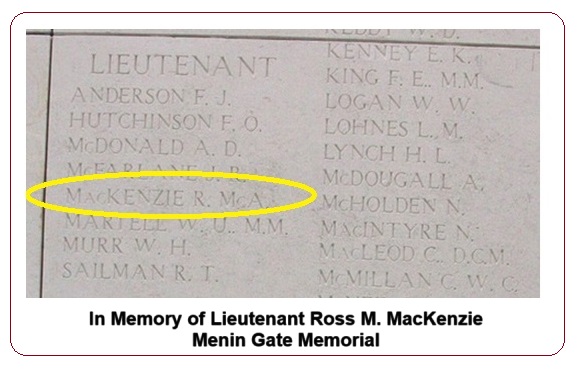
Captain MacKenzie convinced the tired soldiers to merge with his Company and to follow him back into battle against the Germans. Soon, his combined Company was attacked by machine gun fire and there were untold deaths. MacKenzie too was cut down by machine gun fire, but he would not retreat. Instead, he encouraged his Company to continue to fight for several more hours. Only at the last moment as he lost strength because of the loss of blood did MacKenzie relinquish his command, and there he died of severe wounds.” (Obituary of Captain Ross MacAulay MacKenzie). His death was on October 28, 1917. His body was never recovered.
Lieutenant Ross MacAulay MacKenzie is commemorated on page 285 of the First World War Book of Remembrance on Parliament Hill in Ottawa. His name is also listed on the Menin Gate (Ypres) Memorial in Belgium. (Grave Reference: Panel 26 - 30). The Menin Memorial bears the names of 55,000 men who were lost without a trace during the defence of the Ypres Salient in the First World War.
I am very appreciative to RCMP Vancouver Veteran Ric Hall for sending me Ross MacKenzie's obituary and his photograph which I used in this piece.
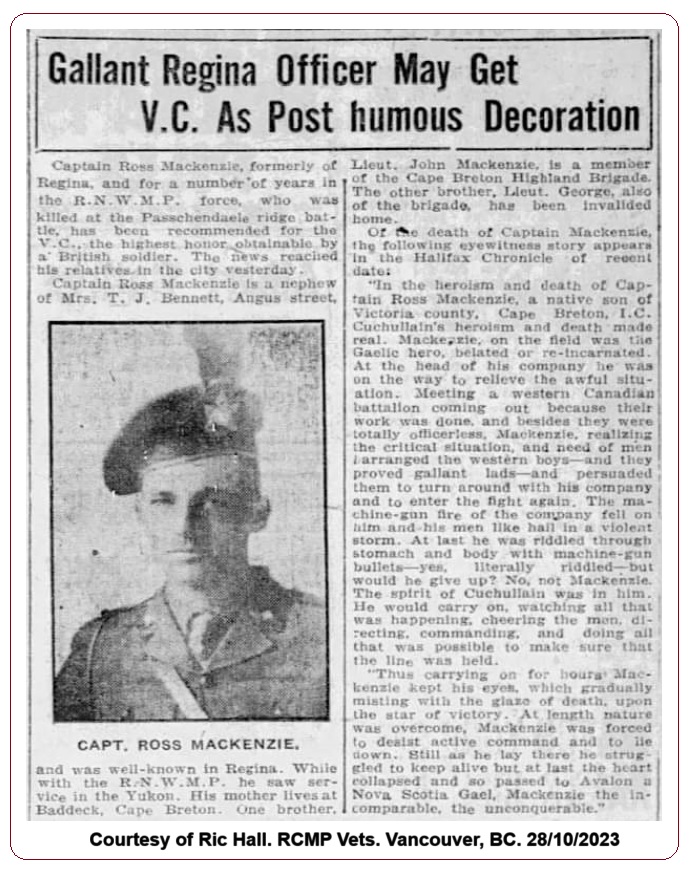
Berton, Pierre. (1972). Klondike: The Last Great Gold Rush: 1896 to 1899. McClelland and Stewart Limited. Toronto.
National Army Museum Website. https://www.nam.ac.uk/explore/battle-passchendaele
Reporting from Fort Healy,
J. J. Healy
September 23, 2023


